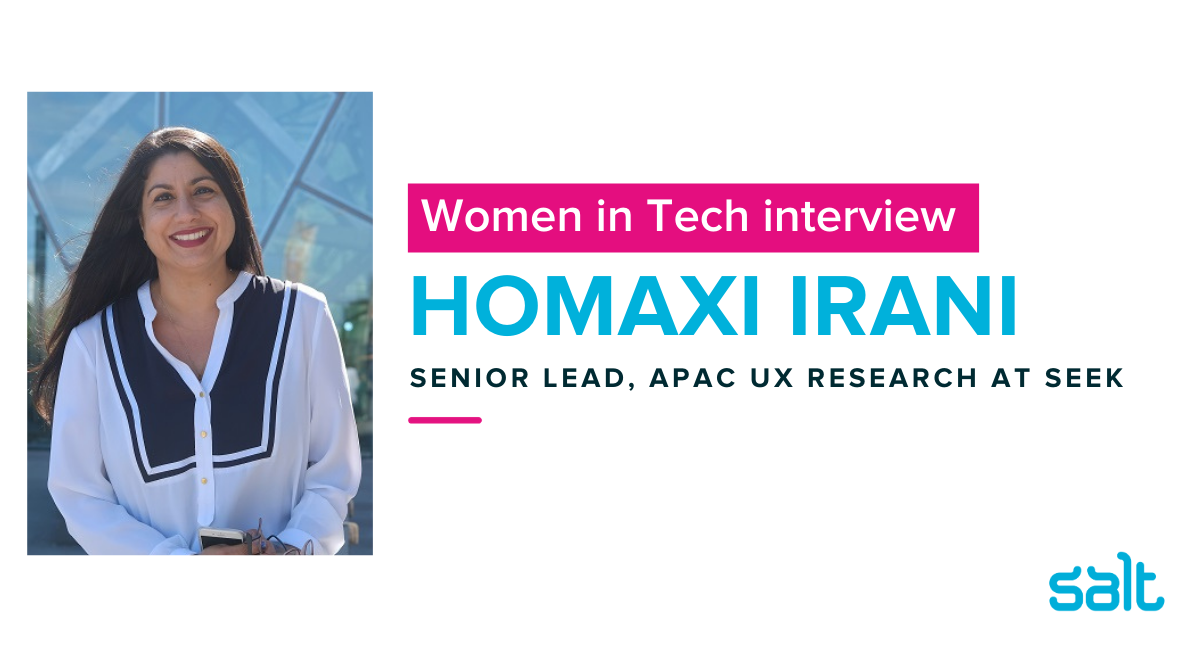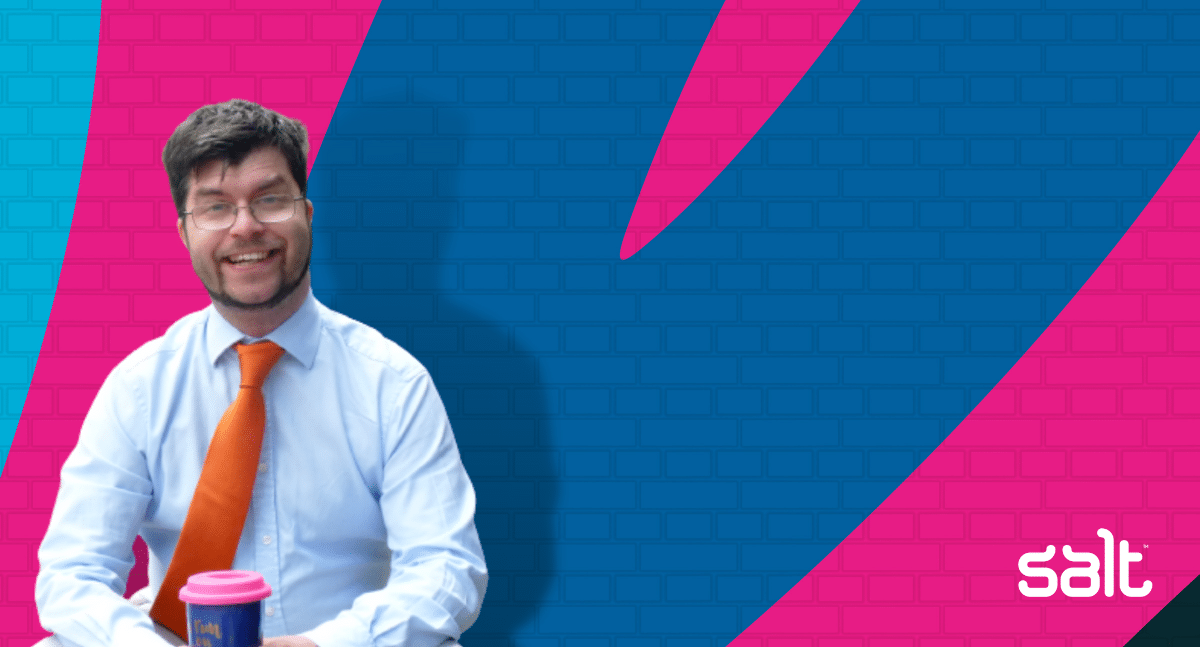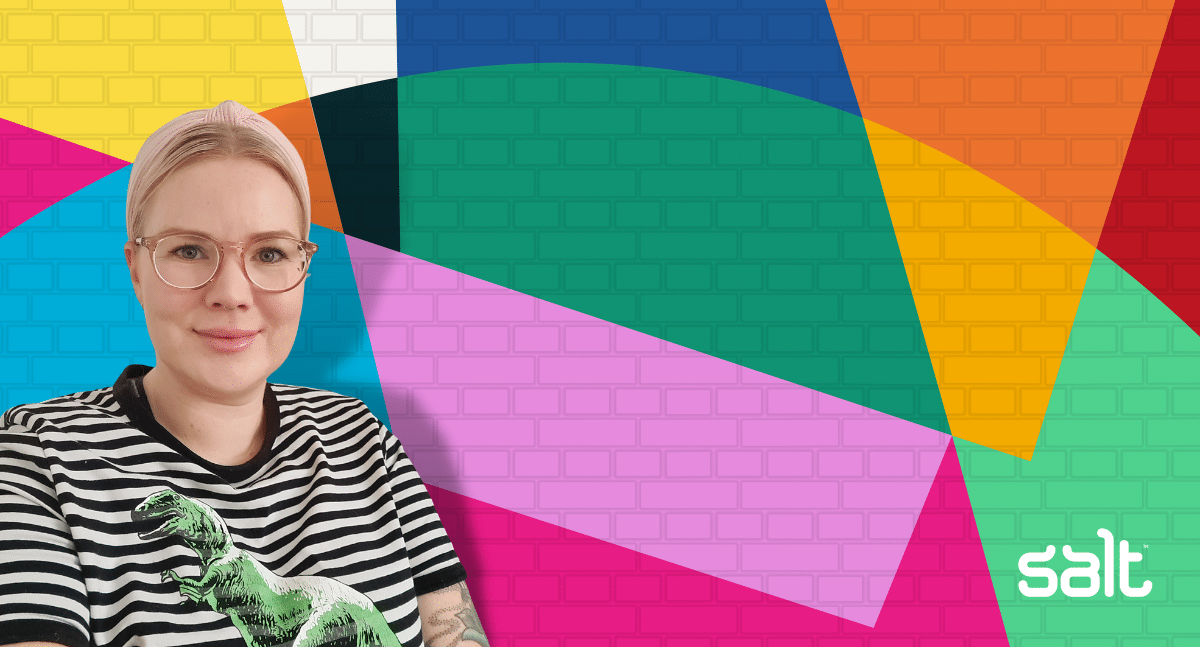
For Salt’s latest Women in Tech interview, we caught up with Homaxi Irani, Senior Lead, APAC UX Research at SEEK, to talk diversity and advice on creating an inclusive workplace.
The #SaltSessions Women in Tech #WiT interview series speaks with thought leaders from around the world to get their opinion and advice on how they have grown their career in tech, and overcome challenges and adversity during their career.
What is your current role and the most exciting part of your work?
I lead a team of UX Researchers located in Australia and Asia. We support three brands across nine Asia Pacific markets. Our team is small, but our opportunities are big! The organisation is going through significant transformation and with that comes a series of challenges that we are chipping our way through (what doesn’t kill you makes you stronger, they say right?), but the most exciting part is all the opportunities before us. As we come together from different regions to unify our Australia and Asia businesses, we have a big ops unification task ahead of us. We are also reframing our research programme and methods, scaling the practice by upskilling and coaching product designers, and extending our capabilities to include more complex quantitative studies, so that we can work closer with our strategic and marketing business partners.
What has been your most career defining moment that you are proud of?
The day I realised that my coaching and mentoring was having a tangible impact, and was appreciated and valued by the coachee/mentee. Feedback is so important, and I am grateful for the feedback I have received from my students and coachees.
What do you think we should be doing more of to encourage more girls to consider a career in tech?
Experiment with organisation models that support flexible hours, asynchronous work and job sharing. There are tools and frameworks out there for this, but the foundation has to start from top-down to create an inclusive culture of respect for diverse situations and psychological safety.
What is the biggest deterrent in your opinion to women succeeding in the workplace?
Right now, more than ever there is a very difficult choice to make in the home. Having children at home requires a parent’s time and energy to keep them physically and mentally stimulated, support their home schooling/online classes, and provide as much balance and “normality” as possible. In a recent study by TrustRadius with 700 women in America, survey results showed that women in tech were 1.5 times more likely to report feeling burdened by having to care for children, the majority of whom have been home from school for months due to the pandemic. 72% of women (53% of men) surveyed said they are currently struggling with childcare. Nearly 60% of the female tech workforce said they had seen their familial responsibilities increase as a result of the pandemic. The same survey also showed that 40% of women in tech feel pressure to be productive (compared to 31% of men). When you combine these two indicators of how COVID-19 has impacted women in tech, it’s a pressure cooker situation.
In a management position, how have you found it best to promote and nurture women’s careers?
I work (now and in the past) with women who are extremely hardworking, talented and capable. For some, they do not see their talent and expertise the way others do. For them, the best thing I have been able to do is build up their self-confidence. Someone to show them the value that their work has brought to the business and help them polish their soft skills in presentation and storytelling. For others, they may have the confidence in themselves, but they don’t have a platform and struggle to get a seat at the table. For them, my aim is to give them exposure — to bring them into the right forums and team rituals where they will get airtime, and visibility directly where they can make an impact and build their personal brand. And for those who are already experienced and confident, I take the opportunity to attribute and champion their work in any forum they may not be present.
How has COVID-19 affected the way you work?
There are a lot of blurred lines for me at the moment in changes to how I work. As I mentioned, we are going through exciting and very positive organisation changes and transformation. This has meant that our teams are no longer local, and we are spread out across APAC. So regardless of COVID-19, we have had to change to more remote and asynchronous work models. The biggest impact is that we cannot travel at the moment so quality face-to-face time with the team is not possible. With the right attitude, a plethora of online tools and strong network connectivity, we have learned to make the best of the situation. Conducting qualitative research is probably the biggest hurdle that we had to overcome at the start of this year, quickly changing our operations so that we could conduct interviews over Zoom. At first, I was concerned over potential loss of the depth and richness we get from having face-to-face consultation with our customer base, but we adjusted our interview techniques and learned how to work around limitations. In the early days, we also made sure to carefully manage expectations within the business. It’s amazing how adaptable we humans are.
As a people leader, more of my energy is dedicated to ensuring the mental health and well-being of my team. With the added pressures and distractions we face at the moment, it’s even more important to focus on the critical few, to ensure everyone is working on the most timely and meaningful initiatives. We talk about what’s going to make the biggest impact to our growth as a team, and have greater impact for our customers and business, and we aggressively prioritise to focus on those things. Paper Giant (a Melbourne-based strategic design consultancy) recently issued a research report “Finding the New Normal”. In the report, they discussed the four key things that managers and organisations have to pay more attention to:
- Managing identity — the blurred line between how we manage our private and professional selves.
- Managing workplaces — there are now as many “workplaces” as there are employees, and how this impacts the changing needs and expectations of employees and organisations.
- Managing time — balancing home and work demands; having a new level of autonomy at work, but it’s harder to protect boundaries.
- Managing relationships — the changing way in which we interact and form connections with colleagues.
For me personally, working from home means that I have had to be more disciplined about boundaries between work and personal time.
Any reading/website you would recommend to stay updated?
My best advice is go broad, don’t limit yourself to only certain thought leaders, blogs or sources. Diversity of experience, opinion and thinking is a powerful stimulator.
What is your biggest stress reliever?
A relaxing aromatherapy massage and family time.
Is there one piece of advice you wish somebody gave you at the beginning of your career?
Not everyone in the workplace will like you, and that’s okay.
What job did you dream of when you were a kid — your Plan A career path?
I always wanted to follow in my father’s footsteps and work in advertising. His work sounded interesting and fun. When I was still in school, he arranged for me to do some work experience with a couple of ad agencies and my mind was made up! My time in advertising proved to be as much fun as I anticipated it would. I also wanted to own a florist shop, so I could play around with beautiful flower arrangements.
About Homaxi
Homaxi began her career in advertising but soon cut her teeth on the early days of what we now think of as “experience design”. She started out as a hands-on designer and information architect, learning the craft of UX on the job, and spent eight years on the tools. Since the last 12 years, Homaxi has been leading teams and building design capabilities. Having worked in Australia and Southeast Asia, Homaxi has experience working in a range of environments — agency, enterprise and as an independent consultant. She’s a coach, a mentor and also teaches UX part-time. Homaxi currently lives and works in Hong Kong.
Looking for some more inspirational reads?
Check out more from our Women in Tech interview series and Females in FinTech interviews .
To shape your future with Salt, a leading digital recruitment agency, send your CV to enquiry@welovesalt.com or use our search to find Technology jobs. You can also keep in the loop by following us on LinkedIn, Facebook, Instagram and Twitter.


